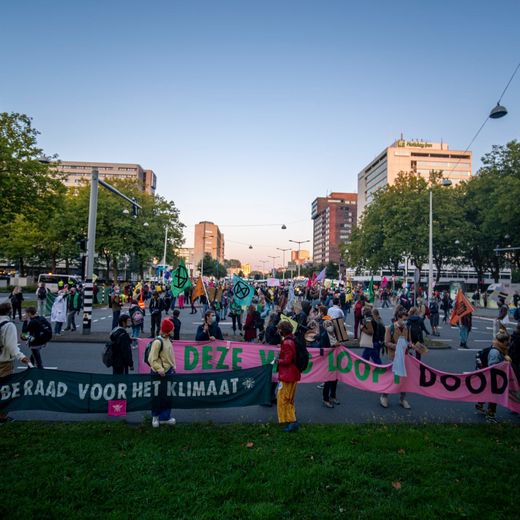A European exploration on how citizens can help us strengthen democracy and fight climate change
Our parliamentary democracies have fallen short in solving one of the most pressing issues of the 21st century: climate change. The dominance of party politics, short-term thinking, the commercial lobby of multinationals and polarization has not only lead to insufficient climate policies but has also weakened our democracies -sparking civic protests all over Europe. Meanwhile, a growing number of European examples with Climate Citizens’ Assemblies have demonstrated how a group of randomly selected citizens offer more inclusive decision-making, reach more effective solutions to complex challenges as climate change, and receive more public support for their policy recommendations.
From April – September 2021, Pakhuis de Zwijger and Bureau Burgerberaad joined forces in the international project: Climate Citizens’ Assemblies: learning with, from and for Europe. Through LIVECAST sessions, indepth interviews and the development of the public knowledge platform (“Dossier”) below, the project brought different European practices and key players together to exchange knowledge, enhance collective learning and come to concrete guidelines for effective and just implementation of Climate Citizens’ Assemblies. The outcomes of this European exploration can be found on a special online publication, where we share concrete insights and lessons for Climate Assemblies.
Want to (first) learn more about Climate Citizens’ Assemblies in Europe? Scroll down below to dive into our knowledge platform, check out our LIVECAST sessions, additional interviews, book- podcast and video-tips and explore the how/what/why of various European examples.
Want to get in touch?
If you are actively involved in (the organisation of) a Climate Citizens’ Assembly in Europe, and want to get into touch about the project: please send an email to programmaker Charley Fiedeldij Dop (she/her) on [email protected]












































































